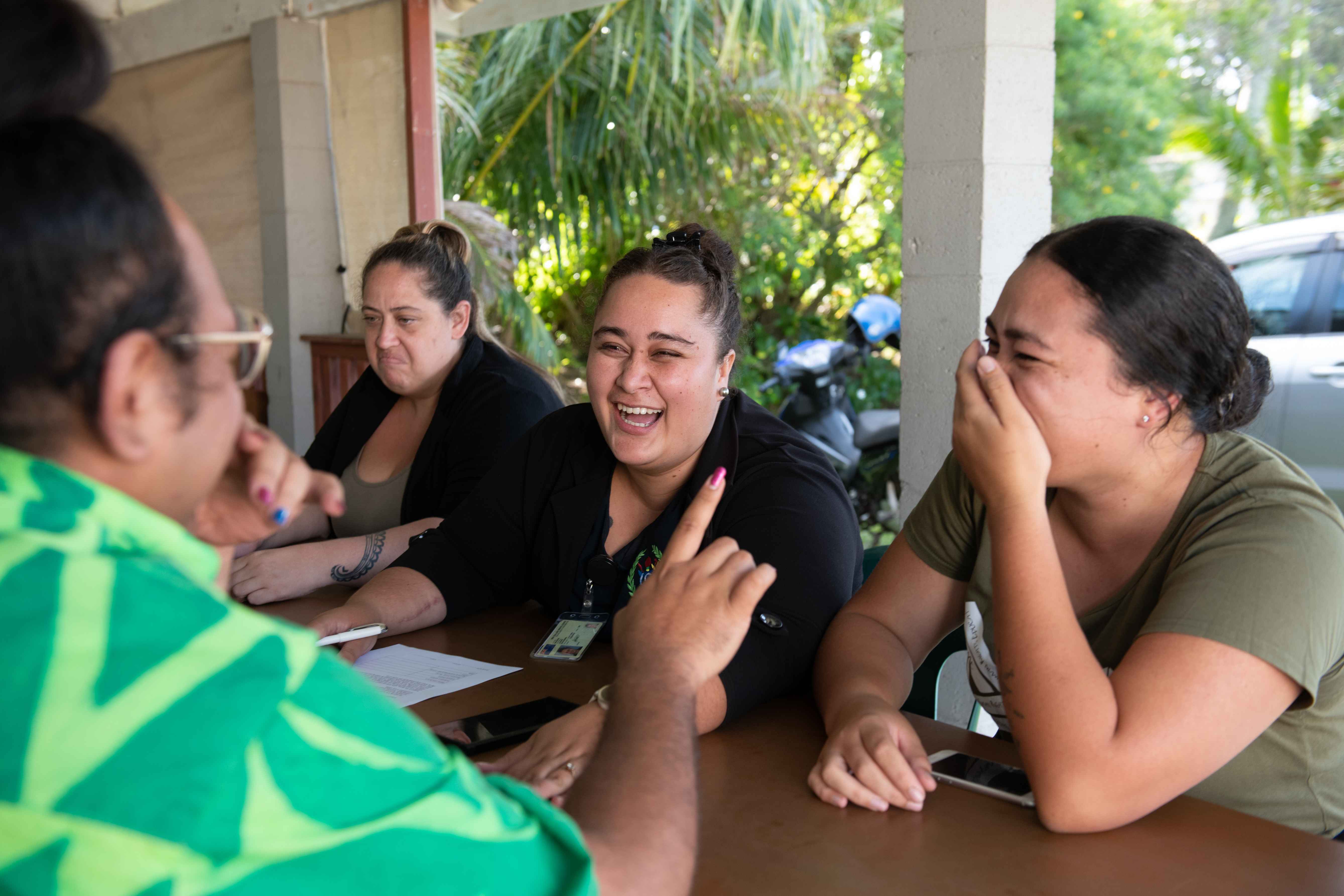Lisiane Messine is a CIFWA youth volunteer and formally the CIFWA Youth Representative for the East South East Asia and Oceania (ESEAOR) region of IPPF. She is also the Senior Probation Officer for the Cook Islands Government. Originally from the outer island of Aitutaki, she moved to New Zealand to complete her undergraduate studies. On return to Cook Islands, she became a CIFWA Youth Volunteer, and went on to become the first Cook Islands youth representative to gain a position on the ESEAOR Youth Executive Committee.
For International Volunteer Day, we are sharing part of Lisiane's story, in her own words.
“I was born in Rarotonga (the main island of the Cook Islands) but raised in Aitutaki (a small outer island). I was raised by my auntie and uncle. I was given to them after they lost two of their children, one was an infant when it died, and one was a miscarriage due to my aunt’s job harvesting in the plantation the chemicals she was exposed to doing that. My biological mother was only 17 years old when she had me, so they decided that my auntie would raise me, and I am grateful and blessed she made that decision. I feel blessed to have two sets of parents. It’s quite normal in the Pacific for this practice to happen. We call them our ‘feeding family’.
Neither of my parents made it to university, they are both self-employed and sell vegetables for a living. My dad funded my university (Bachelor in Applied Social Worker) in New Zealand himself, all from selling vegetables. I’m just grateful. Living in NZ opened my eyes to talking openly about abuse in the family, sexual and reproductive health, relationships. My views changed.
I ran my first workshop for CIFWA at 15 years old. They had come to Aitutaki to run a Comprehensive Sexuality Education (CSE) workshop and I thought ‘Oh my gosh all these things I am not allowed to talk about with my parents’ so as soon as I moved to Rarotonga, I visited CIFWA to see how I could get involved. Now I am seeing the young ones I have seen growing up since they were in nappies having a different experience to me.
I have friends who experienced things that I didn’t know how to deal with, so I thought if I were to learn how to help, I can help my younger friends, family and children not deal with these things and be safer. I was always the ‘go-to’ person for my friends to talk about things so I wanted to learn how to approach it with them.
In 2018, after I became the Youth Rep for CIFWA, we travelled to Malaysia with the other youth reps from around the Pacific, some of whom had never travelled that far before. I took on the role of unofficial ‘mama’ for the group and taking care of the group. It was my first time travelling that far too, but my English was better, so I wanted to take on the responsibility to make sure they were okay. I miss all the other Youth Reps!
During this trip in 2018, we held an election, where nine of the youth reps were elected to the ESEAOR Youth Executive Committee, and I was elected. I felt privileged because I was new, just a girl from Cook Islands, and it made me feel good. I had doubts because I come from a small nation and doubted my experience in SRH and being a youth rep. But after talking to my fellow Pacific Island youth reps, I thought this is a perfect opportunity to put the Pacific on the map in IPPF. The top two positions were both awarded to Pacific Youth Representatives, and I was voted in as Deputy Chairman for the period of three years.
I admired the other youth reps from SE Asia so much, they were so vocal and outspoken. Over my three years in this position, we recommended that those of us that age over 25 should become mentors to the younger youth reps who come in. Our next trip was to the IPPF General Assembly in India, and I remember thinking ‘this is big, this is really big. There must be something that people recognise in me that I don’t even see in myself.’
That experience built my confidence and leadership skills so much’.












